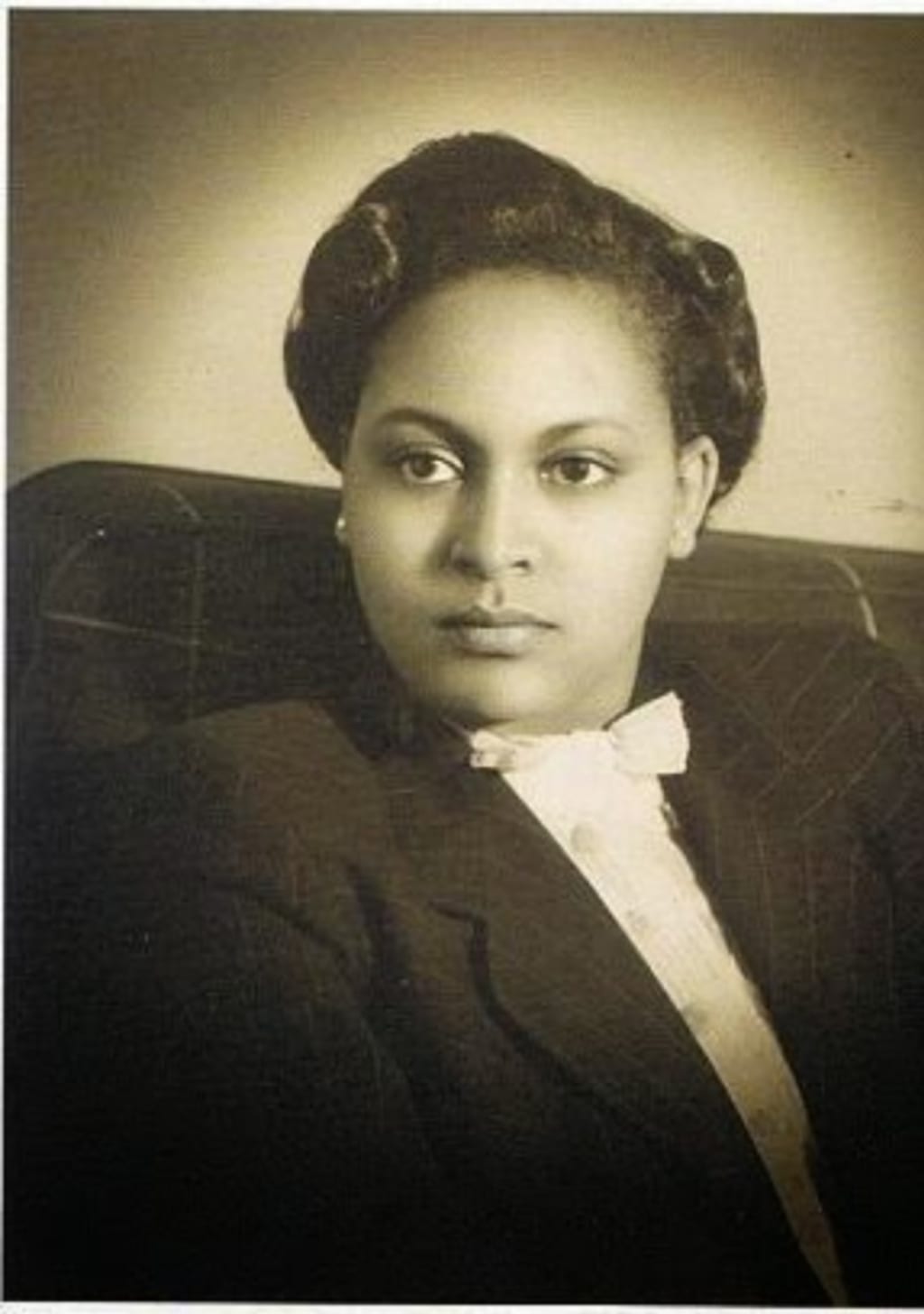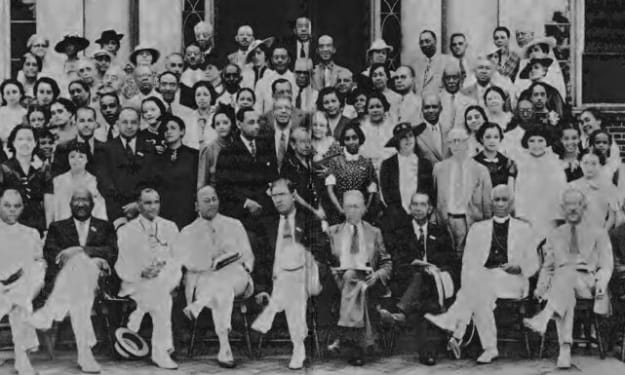The Tragic Fate of Princess Romanework Haile Selassie: Exploring the Circumstances of Her Death
Uncovering the Mysteries and Controversies Surrounding the Untimely Demise of Ethiopia's Beloved Princess

Princess Romanework Haile Selassie was the daughter of Emperor Haile Selassie, who was the last emperor of Ethiopia. She was a member of the royal family and played an important role in Ethiopian society during her lifetime. However, her death remains shrouded in mystery, with conflicting reports about the circumstances surrounding it.
The purpose of this blog post is to explore the tragic fate of Princess Romanework Haile Selassie and shed light on the circumstances of her death. This is an important topic to discuss because Princess Romanework was a significant figure in Ethiopian history, and her death has had a lasting impact on the country's culture and society.
In this post, we will provide a brief background on Princess Romanework and her family, discuss the importance of examining the circumstances of her death, and preview the main points that will be covered in the post. Through this exploration, we hope to gain a better understanding of the tragic fate of Princess Romanework Haile Selassie and its impact on Ethiopian history and culture.
Princess Romanework's life and family background
Princess Romanework Haile Selassie was born on April 8, 1923, in Addis Ababa, Ethiopia. She was the youngest daughter of Emperor Haile Selassie and Empress Menen Asfaw, and a member of the Ethiopian royal family.
As a child, Princess Romanework lived a privileged life, attending private schools and receiving a formal education. She was raised in a palace with her siblings, and was well-known for her love of literature and poetry. She was also known for her passion for music, playing both the piano and the harp.
Princess Romanework was the daughter of Emperor Haile Selassie, who was a well-respected and beloved leader in Ethiopia. He ruled the country for over four decades, and during his reign, he modernized Ethiopia and worked to improve the lives of its people. Princess Romanework's mother, Empress Menen Asfaw, was also highly regarded by the people of Ethiopia, and was known for her charitable work and advocacy for women's rights.
As a member of the imperial family, Princess Romanework played an important role in Ethiopian society. She often attended state functions and events with her parents, and was expected to uphold the family's traditions and values. Despite her royal status, Princess Romanework was known for her humility and kindness, and was beloved by the people of Ethiopia.
Ethiopia's political upheaval
Ethiopia's political upheaval was a tumultuous time in the country's history, marked by social unrest and political instability. The events leading up to the fall of the Ethiopian monarchy were complex and multifaceted, involving a variety of different factors.
In the early 1970s, Ethiopia was facing a number of economic and political challenges, including widespread poverty, corruption, and social inequality. These issues, combined with the growing influence of Marxist ideology in the country, led to a growing sense of discontent and unrest among the Ethiopian people.
The military and communist rebels played a key role in the revolution that eventually led to the overthrow of Emperor Haile Selassie. In 1974, a group of military officers known as the Derg seized power in Ethiopia, promising to bring about political and economic reforms. They were supported by various leftist and communist groups, including the Ethiopian People's Revolutionary Party and the All-Ethiopia Socialist Movement.
As the revolution gained momentum, Emperor Haile Selassie was overthrown and the imperial family was imprisoned. The Derg government declared a socialist state and began implementing a series of radical reforms, including nationalizing land and industries, redistributing wealth, and promoting social equality.
Despite these reforms, however, Ethiopia continued to struggle with political instability and economic hardship. The Derg government was widely criticized for its human rights abuses and authoritarian policies, and the country was plunged into a long period of civil war and conflict.
Princess Romanework's death
The circumstances surrounding Princess Romanework Haile Selassie's death are shrouded in mystery and controversy. She died on November 11, 1962, at the young age of 39, and the circumstances surrounding her death have been the subject of much speculation and debate.
Official reports state that Princess Romanework died of natural causes, specifically from complications related to childbirth. However, there are many who believe that her death was not accidental and that foul play was involved.
Unofficial reports suggest that Princess Romanework died as a result of medical malpractice, negligence, or even poisoning. Some believe that her death was orchestrated by the Derg government, which was in power at the time and viewed the imperial family as a threat to their rule.
Conspiracy theories surrounding Princess Romanework's death abound, with some suggesting that she was killed because of her political beliefs or because she posed a threat to the Derg government. Others believe that her death was part of a larger conspiracy involving foreign powers or outside interests.
Despite these rumors and theories, the true cause of Princess Romanework's death remains unclear. The official cause of death has been accepted by many, but there are still those who believe that there was more to the story than what was reported.
Investigation and aftermath
The investigation into Princess Romanework Haile Selassie's death was a highly controversial and divisive issue in Ethiopia. While the official cause of her death was reported as natural causes, many Ethiopians were skeptical of this explanation and demanded a more thorough investigation.
The investigation was conducted by the Ethiopian government, but it was widely criticized for being incomplete and lacking transparency. Many Ethiopians believed that the investigation was a cover-up, and that the government was not being truthful about the circumstances surrounding Princess Romanework's death.
The controversy surrounding the investigation continues to this day, with many Ethiopians calling for a new investigation into Princess Romanework's death. Some have also called for an independent investigation into the deaths of other members of the imperial family who died under suspicious circumstances.
Despite the controversy surrounding Princess Romanework's death, her legacy and impact on Ethiopia are still felt today. She is remembered as a kind and compassionate person, who was dedicated to improving the lives of her fellow Ethiopians. Her death was a great loss to the country, and it has had a lasting impact on the Ethiopian people.
In the years since Princess Romanework's death, Ethiopia has undergone significant changes and transformations. The country has experienced periods of political instability and conflict, but it has also made significant strides in terms of economic development and social progress.
Today, Princess Romanework is remembered as a symbol of hope and resilience, and her legacy continues to inspire generations of Ethiopians to work towards a brighter and more prosperous future for their country.
Conclusion
The tragic fate of Princess Romanework Haile Selassie is a story that continues to captivate and intrigue people around the world. Her life was marked by extraordinary privilege and opportunity, as well as by the challenges and upheavals that beset her family and her country.
Princess Romanework's death at such a young age was a terrible loss, and the circumstances surrounding it have been the subject of much speculation and controversy. While the true cause of her death may never be known, it is clear that she was a beloved member of the Ethiopian royal family and a figure of great significance in Ethiopian history.
As we continue to learn more about Princess Romanework and her legacy, we are reminded of the importance of understanding and appreciating the rich history and culture of Ethiopia. From the challenges of political upheaval and social change to the enduring resilience and spirit of the Ethiopian people, there is much to explore and discover in this remarkable country.
In this regard, we encourage our readers to continue learning about Ethiopian history, and to seek out opportunities to engage with the people and culture of this fascinating and inspiring nation. By doing so, we can honor the memory of Princess Romanework and the countless other Ethiopians who have contributed to the rich tapestry of their country's history and culture.
Final Note
If you’re interested in exploring who is Jah further, we invite you to check out Fifth Degree’s collection of Rastafarian clothing. Our clothing is designed to reflect the spirit and teachings of Rastafarianism, with bold colors, empowering messages, and a commitment to sustainability and ethical production. We believe that what you wear can be a powerful expression of your values and beliefs, and we’re proud to offer a range of high-quality, stylish, and socially conscious clothing for individuals who are seeking to live in harmony with nature and the divine. Visit our website today to learn more about our collection and find the perfect Rastafarian clothes for woman for you.
About the Creator
Enjoyed the story? Support the Creator.
Subscribe for free to receive all their stories in your feed. You could also pledge your support or give them a one-off tip, letting them know you appreciate their work.






Comments
There are no comments for this story
Be the first to respond and start the conversation.